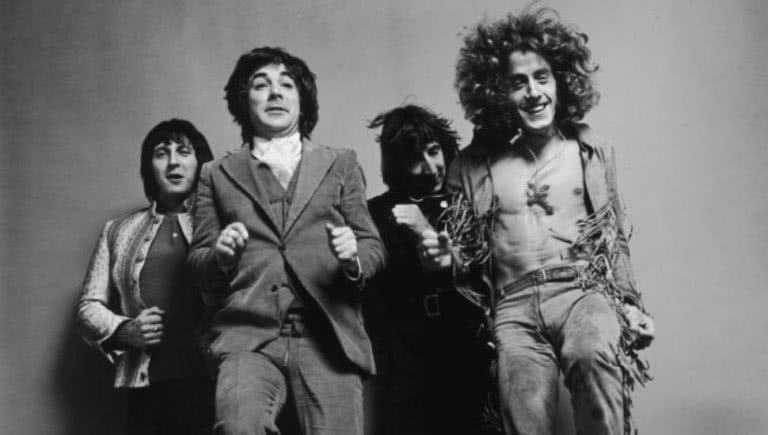The Who’s Roger Daltry has dished the dirt on the band’s infamous instrument smashing habit in a recently unearthed radio interview.
The interview, originally broadcast in 2018, saw the frontman reveal the origins behind their signature onstage antics.
“That started in 1964… we were playing a little venue in Harrow & Wealdstone – very low stage, very low ceiling, a basement in a pub, and Pete [Townsend] used to have this way of playing where he used to hold the guitar at the right angle to his body,” he began.
He continued: “So the Rickenbacker whacked on the ceiling and it broke the head of the guitar. He got so angry he just smashed the thing to smithereens and, of course, the noise that it was creating while was being broken was extraordinary.”
“[Keith] Moon went mad on the drums – just played everything 10 times faster than he’d ever played in his life. John [Entwistle] just thundered away on the bass and the crowd just went absolutely berserk!”
Daltrey went on to reveal that while the instrument smashing had received a strong response from fans, It didn’t come without a cost.
“We thought, ‘This is good!’ But these are expensive guitars. I’ve never figured out why I had to [break] my first guitar. I was in tears. Equally, we could see that this could actually lead somewhere,” he said.
Love Classic Rock?
Get the latest Classic Rock news, features, updates and giveaways straight to your inbox Learn more
“It also took a long time to pay the bills – we didn’t make any profit for six years.”
In other news, Daltry recently opened up to NME about the state of live music in the age of the coronavirus pandemic.
“I feel really sorry for young artists now… records don’t sell, so the only way to make any living is to be on the road for their lives… if they can’t do that, it’s devastating,” he said.
“I’d hate to be young and starting out today, because the theft of the music industry is the biggest robbery in history.”
Check out Roger Daltrey’s interview about The Who’s instrument smashing:




































